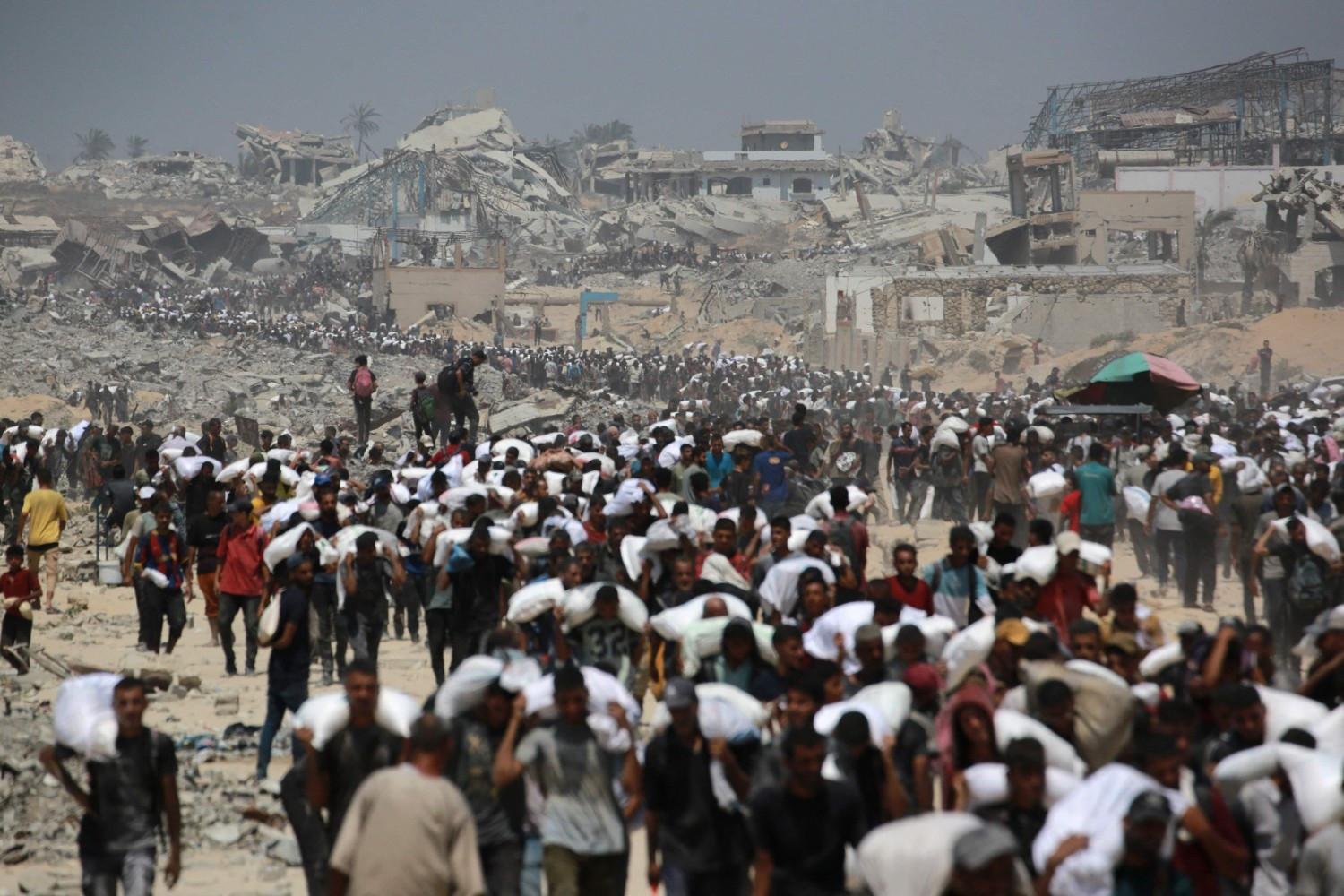
Palestinian walk carrying sacks of flour near Jabalia, in the northern Gaza Strip, on July 27, 2025. (Photo by BASHAR TALEB / AFP)
Truckloads of food reached hungry Gazans on July 28 after Israel promised to open secure aid routes, but humanitarian agencies warned vast amounts more were needed to stave off starvation.
With Gaza's population of more than 2 million facing famine and malnutrition, Israel bowed to international pressure at the weekend and announced a daily "tactical pause" in fighting in some areas.
The aid deliveries that began on July 27 were a “start,” but represented a “drop in the ocean” of what the civilian population of Gaza needs, the U.N.’s aid chief Tom Fletcher said.
Humanitarian organizations continue to face major obstacles in delivering aid to civilians inside the Gaza Strip, the senior official said.
“We can’t just simply turn up and drive through. That’s what we should be allowed to do, that’s what international law demands, but we’re not yet at that point.”
Fletcher cited a range of obstacles, including ongoing security risks, closed crossings, rejected visa applications and customs delays, all of which are preventing vital supplies from reaching those in need.
“There’s massive starvation in Gaza,” he warned. “We’re mobilized to deliver as much as we can … but we’ll judge this by results.”
Israel imposed a blockade on Gaza on March 2 after talks to extend a six-week ceasefire broke down. Nothing was allowed into the territory until late May, when a trickle of aid resumed.
Now, the Israeli Defense Ministry's civil affairs agency said the U.N. and aid agencies had been able to pick up 120 truckloads of aid on Julu 27 and distribute it inside Gaza, with more on the way on July 28.
"For the first time, I received about five kilos of flour, which I shared with my neighbor," said 37-year-old Jamil Safadi, who shelters with his wife, six children and a sick father in a tent near the Al-Quds hospital in Tel al-Hawa.
Safadi, who has been up before dawn for two weeks searching for food, said on July 28 was his first success. Other Gazans were less fortunate; some complained that aid trucks had been stolen or that guards had fired at them near U.S.-backed aid centers.
"I saw injured and dead people. People have no choice but to try daily to get flour. What entered from Egypt was very limited," said 33-year-old Amir al-Rash, still without food and living in a tent.
Jordan and the United Arab Emirates have begun air-dropping aid packages by parachute over Gaza, while Egypt has sent trucks through its Rafah border crossing to an Israeli post just inside Gaza.
The U.N. agency for Palestinian refugees, UNRWA, cautiously welcomed Israel's "humanitarian pauses" but warned Gaza needed at least 500 to 600 trucks of basic food, medicine and hygiene supplies daily.
Meanwhile, Gaza's civil defense agency said 16 people were killed by Israeli fire on July 28.
Agency spokesman Mahmud Bassal said they included five people killed in an overnight strike on a residential building in the southern Gaza district of Al-Mawasi.
A pregnant woman was among the dead, according to the Palestinian Red Crescent, which said its teams saved the woman's fetus by performing a Caesarean section in a field hospital.